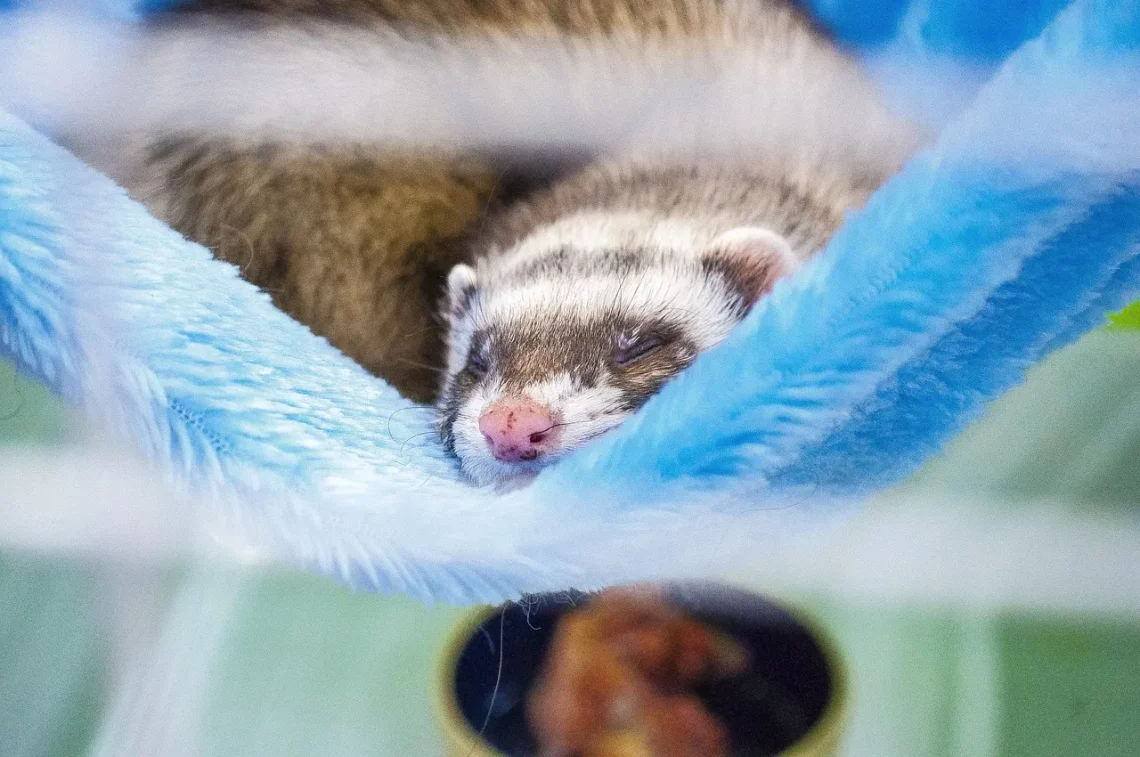
Understanding Insulinoma in Ferrets: Symptoms and Treatment Options
Insulinoma is a rare but significant health issue that can affect ferrets, a popular choice for small pet enthusiasts. These playful and curious animals have unique physiological needs, and understanding the various health challenges they may face is crucial for responsible pet ownership. Insulinoma specifically refers to a tumor of the pancreas that results in excessive secretion of insulin, leading to dangerously low blood sugar levels. This condition can have serious consequences if not addressed promptly.
Ferrets, being small and agile creatures, often mask their symptoms, making it vital for owners to be vigilant about their pet’s health. Early detection and intervention can significantly improve the quality of life for affected ferrets. As such, pet owners should be aware of the signs and symptoms of insulinoma and the treatment options available. Understanding this condition is not just about recognizing symptoms; it encompasses knowledge about dietary management, potential surgical interventions, and the importance of regular veterinary check-ups.
With increasing awareness of ferret health issues, it is imperative to delve deeper into insulinoma, exploring its manifestations and treatment methods. This comprehensive understanding empowers ferret owners to take proactive measures in ensuring their pets lead healthy and fulfilling lives.
Identifying the Symptoms of Insulinoma in Ferrets
Recognizing the symptoms of insulinoma in ferrets is crucial for early diagnosis and treatment. The signs of this condition can be subtle and often resemble other health issues, which can make it challenging for pet owners to pinpoint the problem. One of the most common symptoms is lethargy; affected ferrets may exhibit decreased energy levels and may not engage in their usual playful behavior.
Another key symptom is hypoglycemia, or low blood sugar, which can lead to a range of additional symptoms. Ferrets may become weak, tremble, or exhibit signs of disorientation. Some may even experience seizures, which can be alarming to owners. These neurological signs occur because the brain relies on glucose as its primary energy source, and when levels drop, it can significantly affect brain function.
Ferrets with insulinoma may also show changes in appetite. Some may eat less due to feeling unwell or lethargic, while others might have increased hunger due to the body’s attempt to compensate for low blood sugar levels. Weight loss is often observed, as the animal may not be absorbing nutrients effectively.
Additionally, owners might notice behavioral changes, such as irritability or increased aggression, which can stem from the animal’s discomfort or confusion due to fluctuating glucose levels. It is essential for ferret owners to monitor their pets closely and consult a veterinarian if they observe any of these symptoms, as timely intervention can make a significant difference.
Understanding the Diagnosis Process
Diagnosing insulinoma in ferrets involves a combination of clinical evaluation and diagnostic testing. When a ferret presents with symptoms suggestive of insulinoma, the veterinarian will first conduct a thorough physical examination. This examination will help assess the ferret’s overall health and identify any other potential health issues.
Blood tests are crucial in diagnosing insulinoma. A veterinarian will typically check the ferret’s blood glucose levels, as low levels can indicate hypoglycemia due to excessive insulin production. If hypoglycemia is confirmed, further tests may be required to measure insulin levels in the blood. A high level of insulin along with low blood glucose is a strong indicator of insulinoma.
Imaging studies, such as ultrasound or X-rays, may also be performed to visualize the pancreas and identify any tumors. However, insulinomas can be small and challenging to detect with imaging alone, which is why blood tests play a pivotal role in diagnosis.
In some cases, a biopsy may be necessary for conclusive diagnosis. However, this is less common due to the invasive nature of the procedure. Once diagnosed, the veterinarian will discuss treatment options and management strategies tailored to the ferret’s specific needs.
It’s important for pet owners to collaborate closely with their veterinarians throughout the diagnosis process. Providing a detailed history of the ferret’s symptoms, diet, and behavior can aid the veterinarian in making an accurate diagnosis and developing an effective treatment plan.
Treatment Strategies for Insulinoma
The treatment of insulinoma in ferrets typically involves a combination of dietary management and medical or surgical interventions. Immediate treatment may focus on stabilizing the ferret’s blood sugar levels, especially if they are experiencing severe hypoglycemia. This may involve administering glucose directly or providing a high-sugar food or syrup to elevate blood sugar quickly.
Dietary management is a cornerstone of long-term treatment for insulinoma. A high-protein, low-carbohydrate diet is often recommended to help stabilize blood sugar levels. Ferrets are obligate carnivores, so incorporating high-quality animal protein into their diet is essential. Some owners may choose to work with their veterinarian to formulate a specialized diet that meets their ferret’s needs while minimizing the risk of hypoglycemia.
In more severe cases or when dietary management alone is insufficient, medications may be prescribed. Drugs that reduce insulin secretion or improve glucose metabolism can help manage the condition effectively. However, the response to medication can vary between ferrets, and regular monitoring is necessary to adjust treatment as needed.
Surgical intervention may be an option for some ferrets, especially if a tumor is identified and is operable. However, surgery carries risks and may not always be feasible, depending on the tumor’s size and location. In cases where surgery is not an option, ongoing medical management and dietary adjustments will be crucial in maintaining the ferret’s quality of life.
Regardless of the treatment approach, regular veterinary check-ups are vital to monitor the ferret’s condition and adjust treatment plans as necessary. Continuous support and education for pet owners can significantly impact the management of insulinoma in ferrets, ensuring they live healthy and happy lives.
The Importance of Regular Veterinary Care
Regular veterinary care is critical for all pets, but it takes on additional importance for ferrets, especially those diagnosed with conditions like insulinoma. Routine check-ups allow veterinarians to monitor the overall health of the ferret and provide early intervention if any new issues arise.
During these visits, veterinarians can perform necessary blood tests to monitor glucose and insulin levels, ensuring that the treatment plan is effective. They can also assess the ferret’s weight, behavior, and overall condition, providing valuable insights into how well the pet is managing its health.
Additionally, routine dental care and vaccinations are important components of maintaining a ferret’s health. Ferrets are prone to dental issues, and regular dental check-ups can prevent complications that may arise from poor oral hygiene. Vaccinations help protect against various infectious diseases that could further compromise an already vulnerable animal.
Moreover, regular veterinary visits foster a strong relationship between the pet owner and the veterinarian, facilitating open communication about any concerns or changes in the ferret’s behavior. This relationship is essential not only for managing existing conditions like insulinoma but also for addressing any new health issues that may emerge.
Owners should prioritize finding a veterinarian experienced in treating ferrets, as their unique physiology can differ significantly from other small animals. By establishing a proactive healthcare routine, ferret owners can ensure their pets receive the best possible care, enhancing their quality of life and longevity.
**Disclaimer:** This article is for informational purposes only and does not constitute medical advice. For any health concerns regarding your ferret, please consult a qualified veterinarian.




